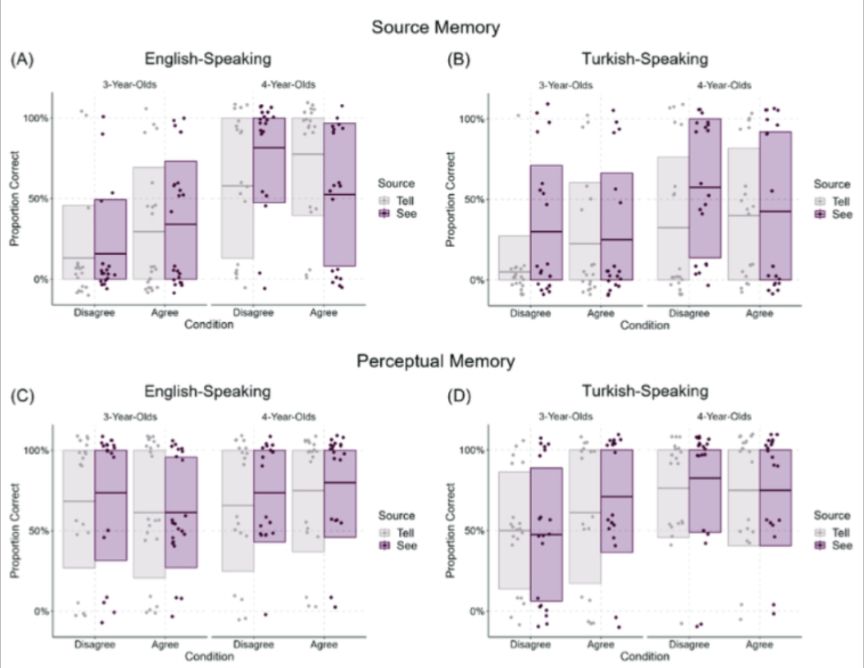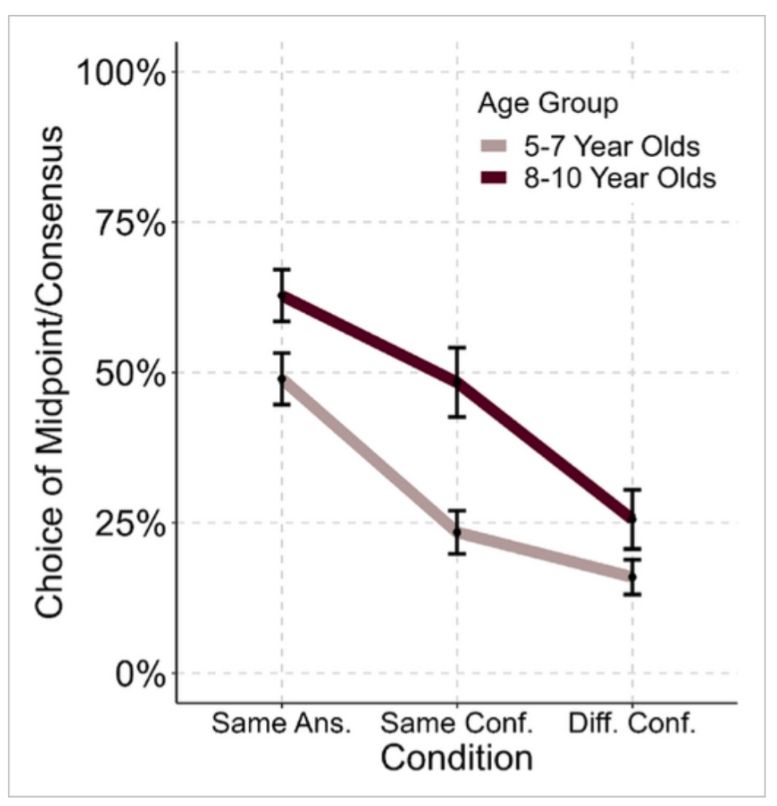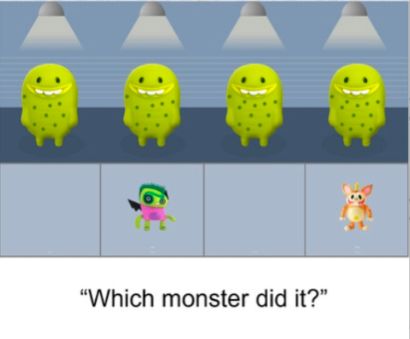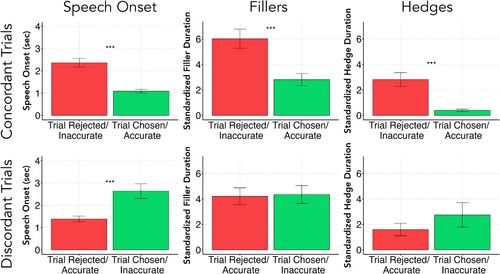
Cognitive development, confidence, collaboration
Research funded by SSHRC 🇨🇦
This wasn't just about heightened attention overall: they didn't remember the perceptual features of the gift box any better.

This wasn't just about heightened attention overall: they didn't remember the perceptual features of the gift box any better.
We asked kids to tell us how they learned the contents (by seeing themselves or by hearing from an adult) to justify their answer.

We asked kids to tell us how they learned the contents (by seeing themselves or by hearing from an adult) to justify their answer.
Why do we bother remembering *how* we learned something?
With @antoniafl.bsky.social, Dilara Keşşafoğlu, Winuss Mohtezebsade, @celestekidd.bsky.social, Aylin Küntay, @janengelmann.bsky.social, and Bahar Köymen
dx.doi.org/10.1037/dev0...

Why do we bother remembering *how* we learned something?
With @antoniafl.bsky.social, Dilara Keşşafoğlu, Winuss Mohtezebsade, @celestekidd.bsky.social, Aylin Küntay, @janengelmann.bsky.social, and Bahar Köymen
dx.doi.org/10.1037/dev0...
But if they were both equally confident, kids 8+ tended to pick the middle option, even though no one had actually endorsed that!

But if they were both equally confident, kids 8+ tended to pick the middle option, even though no one had actually endorsed that!
Two witnesses gave different descriptions of the suspect, but also gave their confidence (high or low).
We then gave kids a lineup that differed veeeery slightly (this one is the # of spots), always with an option in the middle.

Two witnesses gave different descriptions of the suspect, but also gave their confidence (high or low).
We then gave kids a lineup that differed veeeery slightly (this one is the # of spots), always with an option in the middle.
But if you look carefully, they only predicted confidence when kids were accurate - otherwise disfluencies were more aligned with accuracy than confidence. 4/5

But if you look carefully, they only predicted confidence when kids were accurate - otherwise disfluencies were more aligned with accuracy than confidence. 4/5
They used a lot! 3/5

They used a lot! 3/5
We replicated the pattern where kids were more accurate on items they were confident in. 2/5

We replicated the pattern where kids were more accurate on items they were confident in. 2/5
You can now find me at Algoma University in Brampton as an Assistant Professor of Psychology.

You can now find me at Algoma University in Brampton as an Assistant Professor of Psychology.

